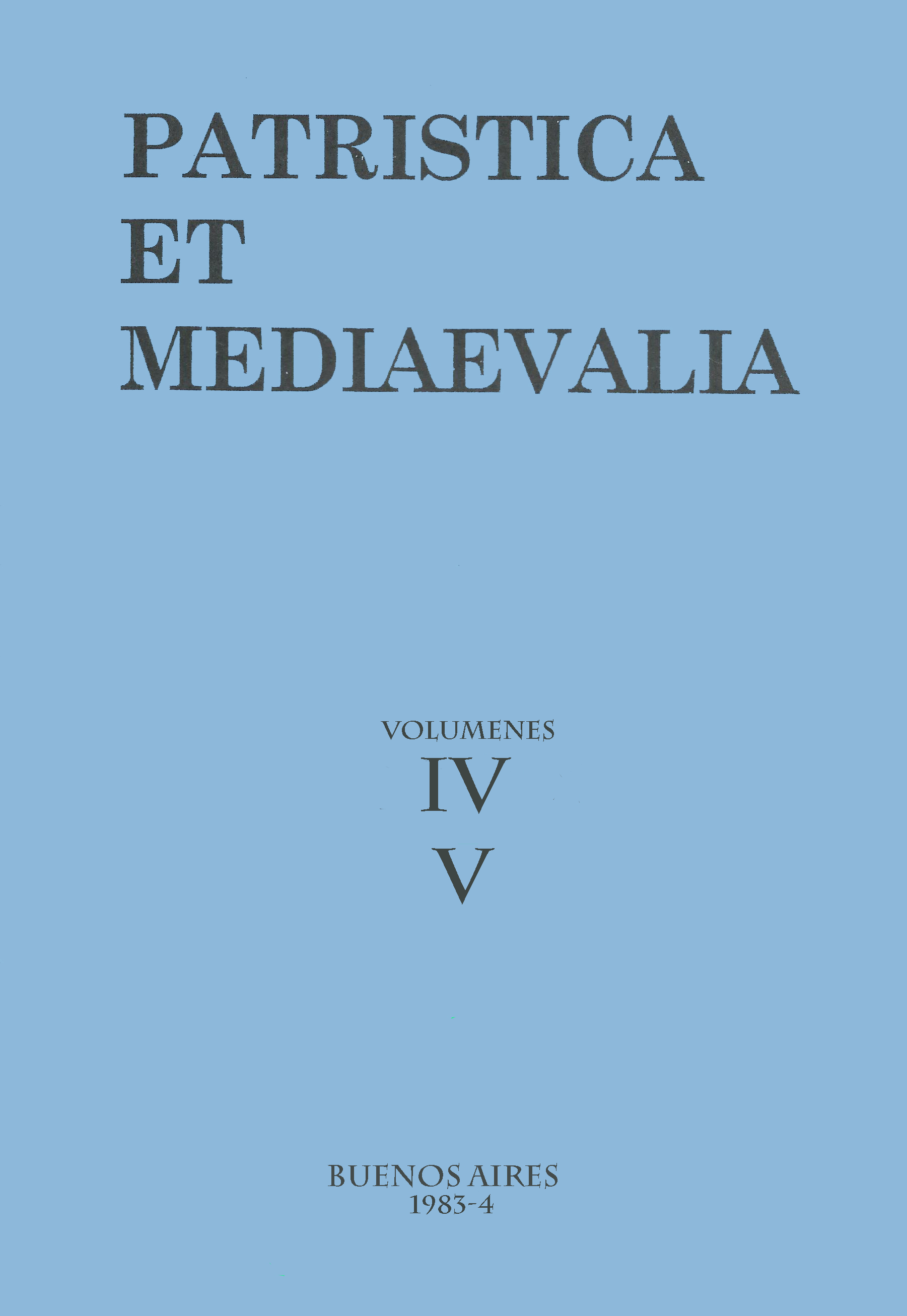Beyond Contemplation. Notes on the First Chapter of the Vox spiritualis of Eriugena (1st part)
Abstract
In the present paper, the text of the chapter I of the homily Vox spiritualis is considered. To do so, we first present a short introduction displaying the essential data of the history of this homily and its various editions. Then, we analyse specifically two not very discussed aspects of this text: the first one, “altiuoli” (1,3), adopted by É. Jeauneau in 1969, and the second one, “obtutus” (1,8), which is found in a quotation from Nicholas of Cues. In connection with the latter, the difficulties over the text received “obtutibus” are pointed out. Then the technical meaning of the expression “mentis obtutus”, which for John Scotus means “ratio”, the second movement of the soul, is highlighted. This faculty, which knows God as the cause, must be surpassed by the evangelist John, presented in the Homily as rising to the knowledge of the highest conceivable divine mystery, and in a certain sense, it refers to the “theologia” itself (symbolized by the ether, which is confirmed by other Eriugena’s texts, in particular Periphyseon, V, 1020 C [existence in the deification of an “ascensionis gradus” superior to the “sapientia”]). Finally, some texts of the pseudo-Denys and of Maximus the Confessor are quoted, which undoubtedly inspired their translator with the doctrine of an “eyeless” knowledge (anommatos) of the divine “darkness”. [To see the second and last part of this article: Vol. 6 (1985)]Downloads
1. The authors who publish in this magazine accept the following conditions:
-
They retain the copyright and grant to the magazine the right of the first publication, with the work registered under the Attribution-ShareAlike 4.0 International License that allows third parties to use what is published as long as they mention the authorship of the work and the first publication in this magazine.
-
They can make other independent and additional contractual agreements for the non-exclusive distribution of the version of the article published in this magazine (eg. include it in an institutional repository or publish it in a book) provided that they clearly indicate that the work was first published in this journal.
-
They are allowed and recommended to publish their work on the Internet (for example on institutional or personal pages).
2. AutoArchive Conditions. Authors are allowed and encouraged to distribute post-print electronic versions of their manuscripts because it promotes their circulation, a possible increase of quotation and a major reach among the Academic community. Color RoMEO: blue.













